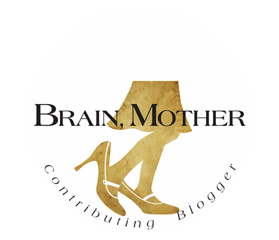The ‘Good Mother’ myth is alive and kicking. So says an important new collection of essays, edited by Avital Norman Nathman and designed to paint a rather messier picture of motherhood indeed. Nathman and Co are not alone in this endeavor. There is now an entire industry dedicated to debunking the fantasy of the Good Mother by chronicling the missteps and misjudgements of her naughty stepsister, the Bad Mother. It is a mass movement particularly prevalent in the blogosphere and its worthy cause of telling it like it is can be traced back to Ayelet Waldman’s genre-defining book of that name.
As both Nathman and Waldman have pointed out, the Good Mother is largely a chimera. Like the boggart from Harry Potter, she is a shape-shifter who takes the form of her intended victim’s worst fear. If you can’t cook, the Good Mother is the one who fills her children to the brim with homemade, organically-sourced super food. If you plop your kids in front of the TV, the Good Mother is the one who lets them play only with wooden toys, whittled by elves in the recesses of the Swiss Alps. If you work full time, the Good Mother is the one showing up for every single school event. If you bottle feed, the Good Mother is a lactating goddess, dripping with liquid gold.
The Good Mother is often our inner voice talking back to us. She is a kind of Jiminy Cricket, who sits on our shoulders, shining a light on the things we might like to have done differently or on the things we might like to be doing better. The opposite of the Good Mother in this regard is not the Bad Mother: it is the Real Mother. Parenting is damn hard work. Most of us fail to live up to our own expectations. The interesting question is not about what those expectations are; it is about why we berate ourselves for not meeting them in the face of reality. A potential answer - and this is the one The Good Mother Myth focuses on - is because we feel confronted, at every turn, by women who seem to be getting it ‘right.’
With the proliferation of venues in which she can haunt us, from the media to Facebook to Pinterest, the Good Mother is everywhere these days. And yet, the backlash against her has been equally fierce. One only has to peruse wildly popular websites like Scary Mommy to see the extent of this effort. But how many essays about the shit hitting the fan, literally and metaphorically, need to be published before we can extricate ourselves from the Good Mother’s impeccably manicured grip? My guess is that there is no number high enough, that the Good Mother will never vanish from the collective consciousness, because the various parts of her will continue to manifest themselves in actual women, who are telling their stories. And what’s more: I’m not sure she should disappear wholly. Her dogged persistence leads me to believe she serves some kind of philosophical purpose.
When it comes to mothering, there are aspects most of us would consider highly subjective and irrelevant to the welfare of the child: what kind of stroller you buy, for instance. So too there are aspects that most of us would consider either objectively wrong (abuse, neglect) or objectively undesirable (the baby rolling off the bed, screaming at the toddler all day long). Then there is the murky middle ground, the moral carcass around which the vultures of the Mommy Wars circle. This is where the subjective and the objective become disconcertingly blurred and this is where the Good Mother’s voice blares the loudest, though she does not utter the same words to each of us (my Good Mother, for instance, does not craft or co-sleep).
Navigating the emotional minefield of this middle ground is of notable difficulty for today’s crop of mothers. We are a generation that invests more in our children than ever before and we have reams of information at our fingertips about how ‘best’ to do it. Each decision we make - from whether we stay home with them to when we wean them to how much we praise them - takes on a disproportionate, almost mystical, quality. As a result, we have become overwhelmed by what is subjective about parenting and extra sensitive to perceived criticism about what is more objective. As Fionola Meredith has articulated recently vis-à-vis breastfeeding, ‘[modern] mothers…will simply not tolerate anybody making them feel bad.’
If the Good Mother makes us feel bad, however, it is because we let her. She is not the problem by herself. The problem is that we have allowed her to become a vehicle for envy and guilt and self-flagellation, instead of a means of identifying what matters most to us and a force for mindful improvement therein. The fear of getting it ‘wrong’ has led us down a slippery slope, where we take comfort in being told everything we do is ‘right’. But everything we do as parents will not yield the perfect outcome, even by our own standards. That’s okay. We shouldn’t be holding the Good Mother up as a mirror in this respect, reflecting our failures back to us. We should be holding her in our heads as an ideal, an incentive to become the best version of the Real Mothers we actually are.
This post is part of the Brilliant Book Club. Check out these interesting takes on The Good Mother Myth at the links below:
- (Left Brain Buddha) Remember When You Said You’d Never Have Kids?
- (Mommy, For Real) Dispelling Myths and Reinventing Motherhood
- (School of Smock) Challenging the Good Mother Myth With Each Mom’s Story
- (Urban Moo Cow) His Perfect Mommy Is Just a Myth


